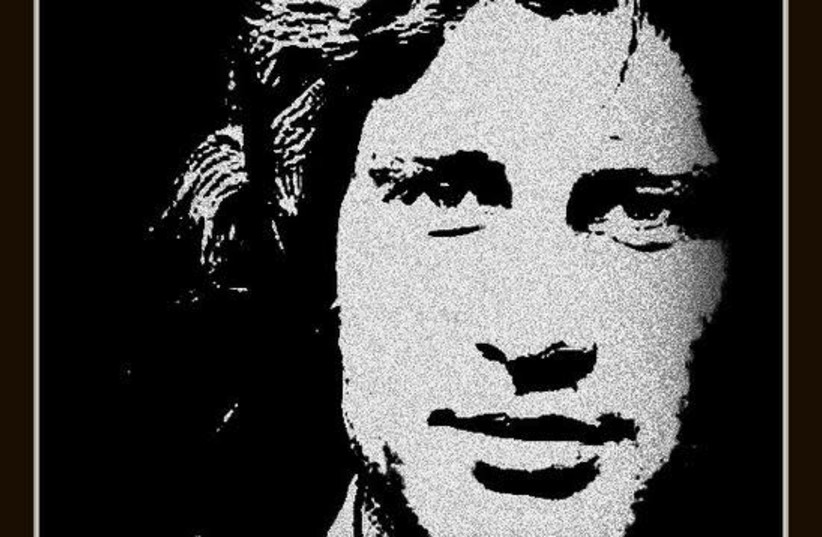His name may not be on instant recall these days, but back in the early 1970s Mike Brant was one of the biggest names on the European pop scene. His glittering, all-too-brief career is portrayed in the Till The Body Crumbles exhibition which opens at the Haifa City Museum May 21 and is due to run through to May 30, 2023.
Brant was born in 1947, as Moshe Brand, to Holocaust survivor parents, in a British internment camp in Cyprus for Jews who tried to beat the British blockade of pre-state Palestine. The Brands eventually made it to Israel eight months later and settled in Haifa.
Brant developed a taste for the performing arts in his teens, taking drama classes at Haifa Theater and joining his brother’s pop band, The Chocolates, when he was 17.
After being exempted from military service on medical grounds, he got on with developing his musical career, performing numbers in English and French, neither of which he understood at the time.
He got a taste of the big wide world when, at the age of 19, he was discovered by impresario Yonatan Karmon and left The Chocolates to join Karmon’s dance troupe. He toured internationally with the group as a vocalist, under the stage name of Michael Sela, traveling to the United States, South Africa and Australia.

Meanwhile, he continued developing his singing chops, taking in a wide-ranging repertoire of Israeli, French and American material, with a penchant for numbers by Frank Sinatra. After two years with Karmon, he returned to Israel and went solo, landing a prestigious slot at the Holton Hotel in Tel Aviv and touring abroad, going down particularly well at the Baccara Club in Tehran.
That was to be the catalyst for Brant’s meteoric rise to success in France, where he became a megastar and bona fide heartthrob, courtesy of a young French singer called Sylvie Vartan, who was also on the Tehran bill. She was suitably impressed by his voice and suggested he come to Paris.
A couple of months later Brant made it to the French capital, eventually tracked Vartan down, who introduced him to producer Jean Renard, the brains behind Johnny Hallyday, a.k.a. the French Elvis. Under Renard’s guidance, he changed his surname from Brand to Brant, recorded his biggest hit, “Laisse-moi t’aimer” (Let Me Love You), and sold millions of records.
THE ISRAELI may have become an international success, particularly in the French-speaking world, but he was beset by personal demons. He struggled to deal with fame and, it is said, suffered from the psychological baggage of his parents’ Holocaust experiences. For much of his adult life he endured an emotional rollercoaster of highs and dark nadirs. In 1975, at the height of his career, he committed suicide. He was 28 years old.
The story of his life and brilliant career is being rolled out in Haifa, curated by Inbar Dror Lax and Yifat Ashkenazi, based on a collection amassed by his younger brother Tzvika Brand. The display includes rare photographs, collectibles, handwritten notes, items of clothing and more.
Award-winning pop and rock radio presenter, author and lecturer Yoav Kutner, who helped to craft Till The Body Crumbles as consultant to Dror Lax and Ashkenazi, put Brant’s life and work into local cultural and sociopolitical context. “With Mike Brant everything was glitter and bright lights,” he notes. “It was all like in America, his outer appearance, clothes, artistic demeanor, the way he related to the media and the audience, and above all, his voice, the way he sang and the songs he sang.”
Kutner feels Brant swam against the Israeli current. “He grew up and shaped his character in an environment in which the big name Israeli music singers and bands were not stars, they were part of the crowd. They didn’t stick out, they didn’t boast, they didn’t dress up and adopt personas so that they could be something else when they got on the stage.”
Back then, things here ran on much more modest and conservative lines, even in the aftermath of the Six-Day War when euphoria and a sense of invincibility ruled the Israeli zeitgeist. “The biblical expression ‘walk humbly’ (in the Book of Micah) wasn’t just the motto of the Reali School in Haifa,” Kutner adds. “It was a guiding line for Israeli mainstream, and not just in the Israeli culture and entertainment fields, but in actual life.”
But, Brant was a maverick and carved his own pathway to stardom regardless of home country mores. “Mike Brant wanted to be different,” says Kutner. “He didn’t want to be part of mainstream Israeli culture, he didn’t want to belong to the good boys who went to youth movements and took part in folk dancing. He was drawn to music outside the mainstream, to the new and the daring. He wanted to be part of the music that in those days was considered to be anathema to Israeli culture.”
Brant’s star may have burned brightly for far too brief a time but, at least for now, we can get a better idea of who he was and what made him tick.
For more information call 04-911-5888 or visit www.hms.org.il.
